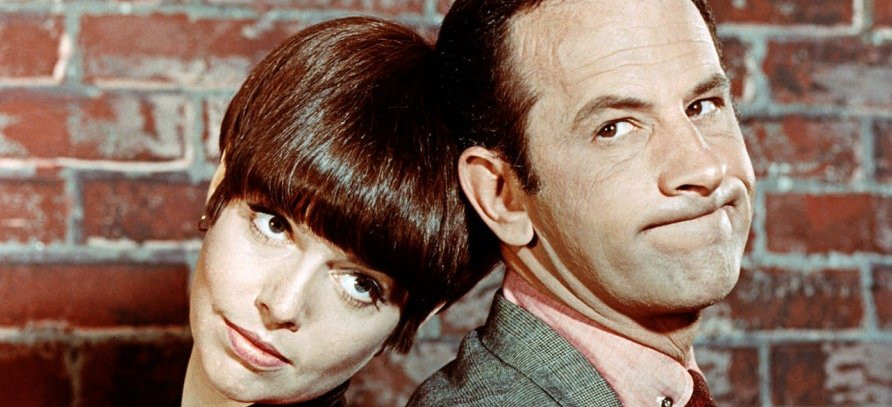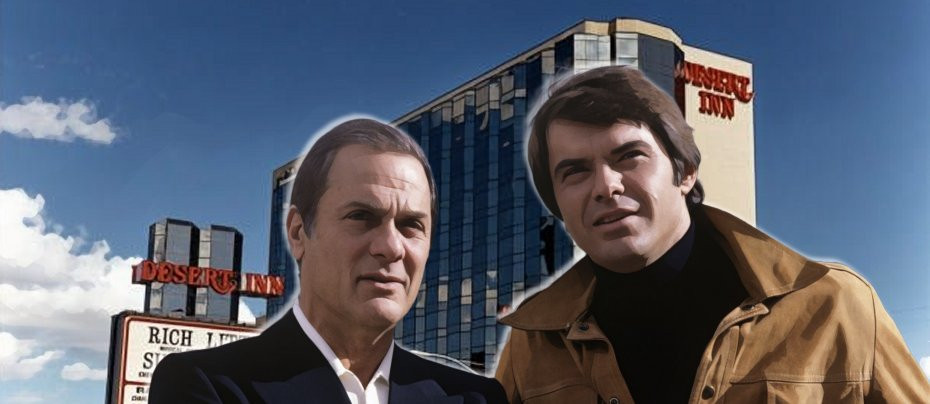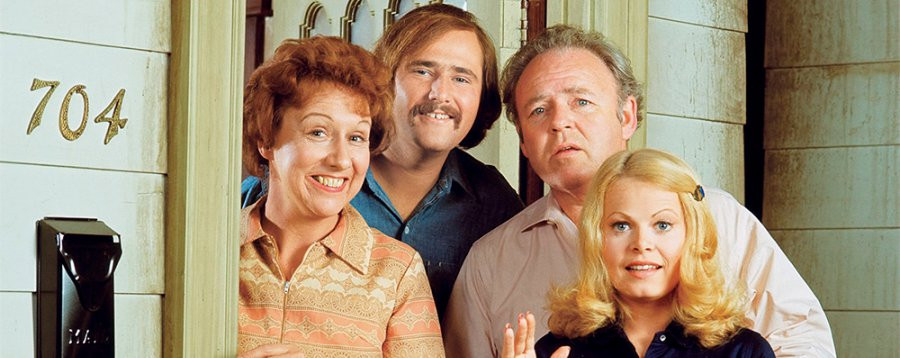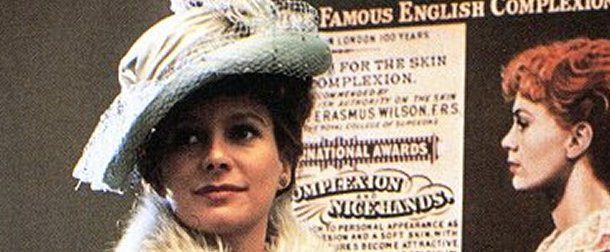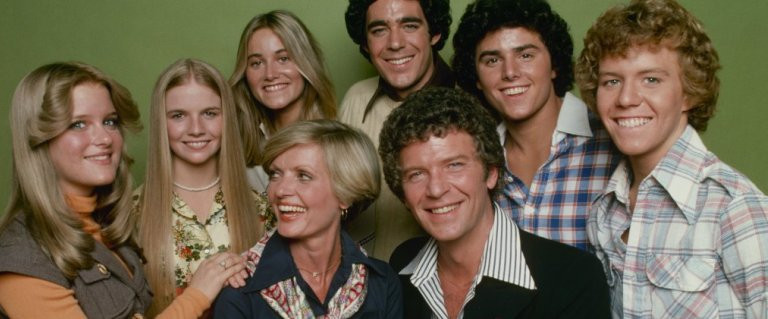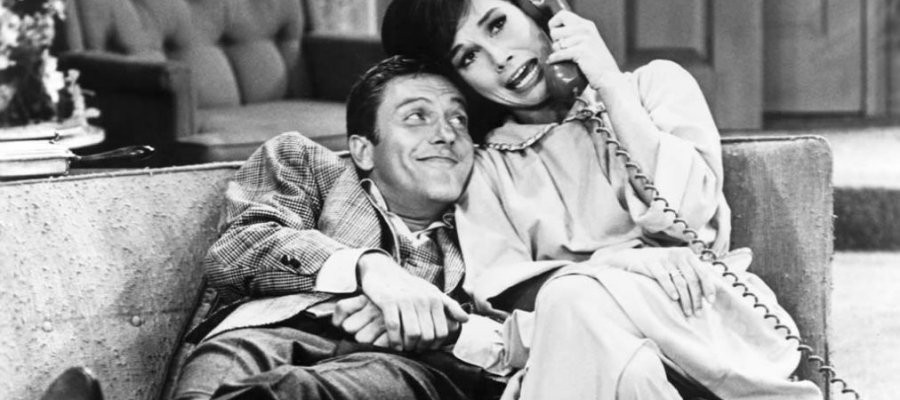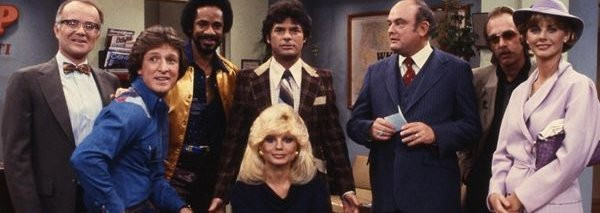
WKRP in Cincinnati
1978 - United StatesOne of the best comedies to come out of the famed MTM (Mary Tyler Moore) Productions stable, WKRP In Cincinnati brought together a unique premise with appealing and off-the-wall characters to create a true American comedy classic. Before "WKRP" there had been a few comedies based on the radio industry (such as the short-lived Good Morning, World, which aired on CBS in 1967-68). But "WKRP" managed to survive the longest. It become even more popular in syndication, which led to its return in a new, second version. Unfortunately, like many shows with the words "The New" in its title, the sequel didn't live up to the original.
WKRP was a 5,000 watt station (1530 on the AM dial) with the lowest ratings of any radio outlet in Cincinnati, Ohio. The seldom seen Lillian "Mama" Carlson owned the station. Her conservative, stuffy son Arthur (Gordon Jump), AKA "The Big Guy", was the general manager of WKRP. Since he loved fishing; the station's mascot was a carp. But its "easy listening" format with elevator-type music attracted only a small group of older people, along with advertisers such as the "Shady Hill Rest Home" and "Barry's Fashions for the Short and Portly".
In an effort to improve its dismal ratings, a new program manager was hired-young and handsome Andy Travis (Gary Sandy), who immediately shook up WKRP by changing its format to rock and roll, and hiring several new staffers. Tops among the newbees was morning announcer Johnny Carvella (Howard Hessman), known on the air as "Dr. Johnny Fever". (He was hired at WKRP after being fired from a Los Angeles station after saying the word "booger" on the air.) "Fever" was actually based on a real-life Cincinnati radio personality named Skinny Bobby Harper; he died in July 2003 at age 64. The smooth, flashy and unflappable African-American announcer Gordon Simms (Tim Reid), who was known on-air as "Venus Flytrap", covered the evening shift. Eager and pretty Bailey Quarters (Jan Smithers) was Andy's assistant who later became an on-air news reporter and assistant news director, much to the chagrin of her supervisor, the meek and pompous Les Nessman (Richard Sanders). Les had tape on the floor around his desk to indicate where the walls of his office would be, and was extremely proud of his award-winning farm reports. The station's sales manager was the arrogant, loudly dressed leach Herb Tarlek (Frank Bonner).
Probably the most-popular character on the show was blonde, buxom receptionist Jennifer Marlowe (Loni Anderson). She was no stereotype "dumb blonde". Jennifer was very sharp, knew more about what was going on in the station than her boss, and frequently sidestepped the clumsy sexual overtures of the married Herb Tarlek. It was also implied that Jennifer gave her affections to wealthy, older men and received "gifts" for her "companionship".
Arthur and "Mama" were not happy with rock and roll (and neither were the few remaining listeners, who demanded a return to the old format and an on-air apology to bandleader Lawrence Welk). But the Carlsons decided to give "Top 40" radio and the new team a chance to pull WKRP out of the ratings cellar.
"WKRP" dealt with many topical issues related to broadcasting-advertiser pressure, inter-office competition, and the all-too-real problem of listeners taking on-air personalities seriously. But even with serious subjects, the show never lost its sense of humour.
The show's best-known episode came during the first season with a story called "Turkeys Away". The premise had Arthur Carlson ordering the staff to stage a Thanksgiving promotion for the station by dropping 20 live turkeys from a plane onto downtown Cincinnati. But there was just one flaw in Carlson's scheme: Turkeys can't fly. The off-air crash landing of the gobblers was captured by on-the-scene reporter Les Nessman, who described the fiasco in words and terms used by a radio announcer during the 1937 explosion of the dirigible "Hindenburg".
Viewers may note that the show occasionally referred to "Mayor Springer". In the late 1970's and early 80's, Jerry Springer was the elected leader of Cincinnati, years before he gained national fame with screaming studio audiences, fist fights and the sexually-charged subjects on his self-titled talk show.
Part of the sensibility of "WKRP" came from the mind of its creator, Hugh Wilson (who based the show on his experiences in radio and advertising in Atlanta, Georgia). Wilson went on to direct and write such successful films as "Police Academy" and "The First Wives Club".
Unfortunately, the show became a victim of frequent time slot switches. After its first month on the air, CBS pulled "WKRP" from the schedule due to low ratings. The show was retooled slightly and returned in January 1979, following M*A*S*H on Monday nights. "WKRP" soon landed in television's top 20 and became a top-five series during the summer of 1979. But CBS began to shift the comedy from one timeslot to another every season until critics and fans became frustrated trying to find the programme. It was still at its creative peak when CBS cancelled "WKRP" in the spring of 1982. In Michael Kassell's book "America's Favorite Radio Station", some "WKRP" producers and actors cited several possible reasons why the show was given the cavalier treatment by the network. A few noted the show may have been the victim of politics between MTM and CBS, while other speculated that MTM gave less support to WKRP in favour of its more prestigious dramas such as Hill Street Blues.
The final CBS episode had Mama Carlson leaning toward changing the station's format to all-news, forcing the staff to take action and block the plan. (In retrospect, Mama Carlson's plan was not so far-fetched. During the 1980's, American radio listeners began flocking to FM stations for music. FM, with its high-quality stereo sound and lack of static, eventually became the home for music formats. AM's lower quality signal proved suitable for news and talk stations, a situation that continues to this day.)
WKRP In Cincinnati went into syndication (sold to local television stations), and to everyone's surprise, became even more popular than during its original CBS run-and the biggest syndication hit in MTM history, bigger than even The Mary Tyler Moore Show. Given the success of "WKRP" in reruns, it was inevitable the new owners of MTM decided to revive the show with fresh episodes for syndication.
The New WKRP In Cincinnati made its debut in the fall of 1991, with three of the original show's regulars (Jump, Bonner and Sanders) recreating their original roles. The new show did have Hessman, Reid and Anderson making a few guest appearances. But a mostly new cast could not compensate for weak scriptwriting or characters that were not fully fleshed out. The second season saw a few tweaks, but "The New WKRP" died in 1993; this version is seldom seen today.
Those now in radio broadcasting who came of age during "WKRP's" run more often than not believe the show is a fair representation of the radio industry and the people who work in it. (After all, you have to be a bit off-centre to want to work in such a crazy medium. Certainly that applies to the author of this piece.) But at a time when most sitcoms were bland or lacking in depth, WKRP In Cincinnati proved to be an oasis for the viewers who took the time and trouble to find it.
Seen this show? How do you rate it?
Seen this show? How do you rate it?
Published on February 12th, 2019. Written by Mike Spadoni (August 2003) for Television Heaven.


